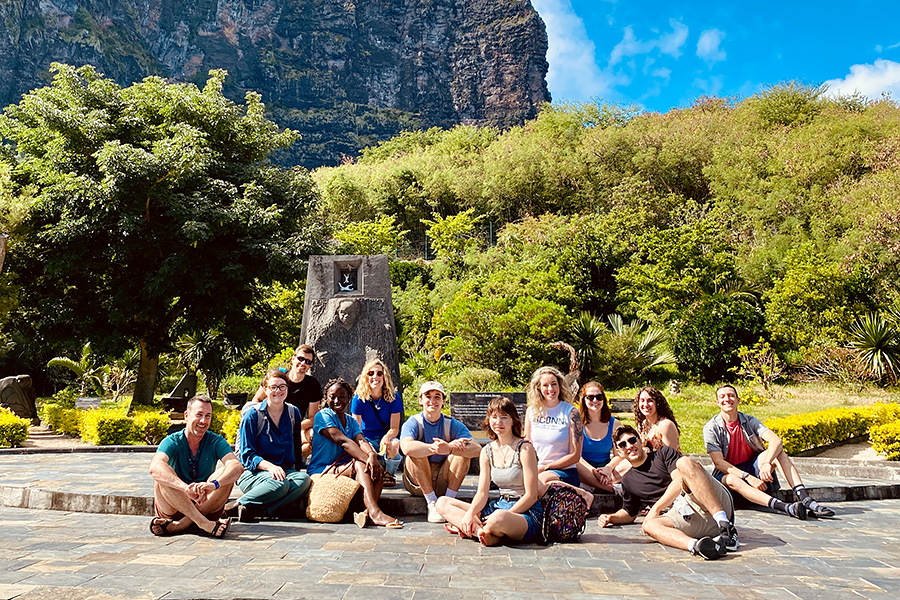Undergraduate Education
The UConn Department of Anthropology offers a Bachelor of Arts (BA) degree and three exciting minor options. Through coursework and hands-on experiences, our students establish a solid foundation of transferable skills that they use in a variety of jobs and careers.
Degree Options
Anthropology is the holistic study of human life. Anthropologists examine what it means to be human and offer valuable insights into the challenges we face today in our rapidly changing, culturally diverse, and increasingly interconnected world.
UConn’s undergraduate education in anthropology spans many fields in the sciences, social sciences, and humanities. Our students connect lessons from the past to contemporary issues related to race/racism, gender, class, inequality, health, environmental change, and more.
Major
Anthropology majors study the big picture of human experience by exploring biology, cultures, and societal structures throughout time and space.
Students pursuing a BA in Anthropology learn about important concepts in subfields like archaeology; cultural, environmental, and medical anthropology; and evolution, cognition, and culture. They also participate in experiences like field training, research, and internships, where they can explore their interests and gain applied skills that prepare them for the future.
Minors
Anthropology
Anthropology minors study the diversity of human cultures and experiences, and explore foundational questions about what makes us human. An anthropology minor complements many majors and provides important training for careers in areas like health care, education, government, and policy.
Anthropology of Global Health
Anthropology of global health minors gain theoretical and methodological tools needed to analyze health from an anthropological perspective. Students in this minor can integrate anthropological analysis into their study of global health problems and solutions.
Native American and Indigenous Studies
Students explore historical and contemporary topics that impact Native American and Indigenous communities. They use a variety of perspectives across the humanities and social sciences to explore these topics.
Honors Program
Our majors can pursue two graduation awards through the Honors Program in Anthropology, coordinated in partnership with the UConn Honors Program. Honors students get access to a wider range of challenging courses and hands-on research collaboration with a faculty mentor.

Customize Your Education
Students in the Department of Anthropology pair their degrees with other fields of study based on their interests and career goals. Students can also enhance their education by getting involved in internships, field training, research, and other leadership positions.
Resources for Undergraduate Students
Academic Advising
Anthropology majors are assigned a dedicated academic advisor. Students meet with their advisor each semester to select courses and plan their degree. Advisors can help you explore study abroad opportunities, minor options, internships, careers, graduate schools, and many more topics. Advising sessions are by appointment only. Learn more about advising and how to make an appointment with your advisor.
Awards and Scholarships
The department awards funds to undergraduate students for research projects and conference travel. They also offer travel awards to offset the cost of attending field training schools. Learn more about department awards and how to apply.
Anthropology students can also apply for scholarships that consider merit and financial need through the College of Liberal Arts and Sciences.
Jobs and Careers
After they graduate, UConn anthropology majors work in a variety of professional fields and locations. Many of them also continue on to graduate study.
Not sure what to do with your anthropology degree? You can explore job titles and industries where our alumni work, as well as professional development resources from the department and UConn’s Center for Career Development, on our Undergraduate Careers page.
Contact the Director of Undergraduate Studies
For questions, please email: